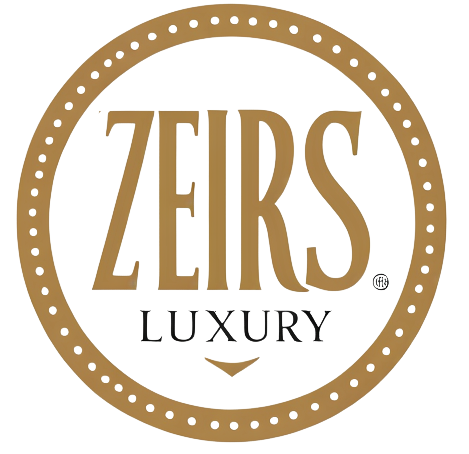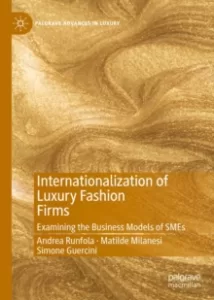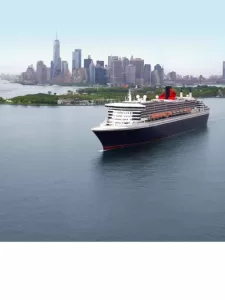
Introduction to Eco-Conscious Luxury Travel
The Emergence of Sustainable Luxury in the Travel Industry
– **Environmental Awareness**: In recent years, there has been a significant shift in the perception of luxury in travel. The idea that opulence must be extravagant and indulgent without concern for its ecological footprint is changing.
– **Sustainable Innovations**: Forward-thinking luxury travel companies are innovating, offering experiences that do not compromise on grandeur or comfort while integrating sustainable practices.
– **Eco-Luxury Metrics**: Hotels and resorts now often boast certifications and awards for their green initiatives, like LEED certification or participation in the Global Sustainable Tourism Council.
– **Renewable Energy**: Many luxury properties are harnessing renewable energy sources, such as solar or wind power, to reduce their carbon footprint.
– **Waste Reduction**: From eliminating single-use plastics to composting and responsible recycling, luxury accommodations are becoming leaders in waste management.
– **Conservation Efforts**: Upscale retreats are increasingly involved in wildlife preservation and natural habitat restoration, engaging guests in their efforts.
– **Community Engagement**: Luxury brands are working with local communities, offering authentic experiences that also provide economic benefits to the local population.
Understanding the Eco-Conscious Traveler
– **Defining the Market**: The eco-conscious traveler is someone who seeks extraordinary experiences but is equally passionate about making positive environmental choices.
– **Prioritizing Experiences**: These travelers are more interested in the quality of the experience and its sustainability factor than in mere ostentatious displays of wealth.
– **Health and Wellbeing Focus**: Many seek destinations offering wellness programs that are in harmony with nature, such as organic food offerings, yoga retreats, and nature therapy.
– **Cultural Immersion**: Eco-conscious travelers prefer to engage deeply with the cultures they encounter during their travels, often participating in local customs and traditions.
– **Responsible Transportation**: The mode of travel is also carefully considered, with a preference for electric or hybrid vehicles and airlines that have a smaller carbon footprint or offer carbon offset programs.
– **Bespoke Journeys**: Customization is key. The ability to tailor-make one’s travel itinerary to reflect personal values and desires is an essential aspect of luxury travel today.
In essence, the landscape of luxury travel is undergoing a paradigm shift. The alliance between high-end experiences and ecological mindfulness represents a burgeoning sector where the joys of travel are harmonized with the necessities of environmental conservation. This evolution in luxury travel is not only a response to global demands for sustainability but also a proactive approach that defines the new standards of sophistication and responsibility.
The Virtuoso Study: A Turning Point
Key Findings from the 2021 Virtuoso Survey
– **Increased Desire for Sustainable Travel**: The findings of the 2021 Virtuoso survey were clear. High-end travelers are increasingly looking for sustainable options that align with their personal values regarding environmental conservation.
– **Growth in Eco-Luxury Experiences**: The survey highlighted a burgeoning market for eco-luxury experiences, indicating a trend where luxury is redefined to include sustainability as a core component.
– **Willingness to Pay a Premium**: Notably, the study revealed that travelers are willing to pay a premium for travel options that promise to reduce their ecological footprint while providing an opulent experience.
As a Global Account Manager with expertise in elevating corporate travel experiences, I’ve seen firsthand the growing demand for these sustainable yet luxurious options. This shift in consumer preferences is not just a fleeting trend; it is reshaping the travel industry’s future in profound ways. My own work increasingly focuses on integrating these elements into corporate travel policies without compromising on luxe elements.
How Luxury Travelers are Influencing the Industry
– **Consumer Demand Drives Change**: Travelers seeking high-end experiences are demanding more environmentally friendly practices from service providers. This is pushing the industry towards greener solutions.
– **Introduction of Sustainable Destinations**: High-net-worth individuals are now showing clear preference for destinations that are not only exclusive but also ecologically responsible. This is driving the creation of new sustainable travel spots.
– **Technology and Innovation in Ecology**: Further, luxury travelers are advocating for the use of cutting-edge technology to better protect the environment, from electric luxury vehicles for transport to innovations in sustainable lodging.
In my role, I am regularly engaging with both service providers and travelers. This dynamic interaction ensures that I’m helping to foster a market that values ethical and opulent experiences in equal measure. I guide my clients towards choices that do not just serve their immediate comfort but also have an enduring positive impact on the planet. This balance of luxury and ecology is not just the future of travel; it is the present, and it is exciting to be at the forefront of this evolution.
The path to sustainable luxury travel is one I am proud to tread. It allows me to advocate for ethical travel experiences that don’t skimp on indulgence. Bridging these two worlds is no longer a niche endeavor; it’s quickly becoming a core expectation in the world of luxury travel. And I, for one, am thrilled to be part of the movement that’s leading the industry onto this promising and essential path.
Eco-Friendly Practices in Gourmet Restaurants
Use of Locally Sourced Ingredients
In my role as a Global Account Manager, I’ve observed a compelling shift in the culinary world of luxury travel. Gourmet restaurants within high-end resorts are increasingly embracing local sourcing. This is not a mere trend; it’s a commitment to supporting local farmers and producers which simultaneously reduces the carbon footprint associated with transportation. In practice, this involves:
– **Seasonality at the Forefront**: Menus are designed around the availability of local produce, offering seasonal dishes that celebrate the flavors of the region.
– **Partnering with Local Suppliers**: These establishments form partnerships with nearby growers, fisheries, and artisans, ensuring that ingredients are not only fresh but also sustainably harvested.
– **Educating Guests on Provenance**: A key part to this approach is the education of guests about the source of their meals, which adds an enriching layer to the dining experience.
Through my interactions with chefs and restaurateurs, I’ve witnessed how this conscientious approach to sourcing is being integrated into the luxury dining narrative. It’s a connection that goes beyond the plate, imbuing meals with a sense of place and story while aligning with the guests’ values.
Implementing Sustainable Dining Experiences
As I help my clients make informed decisions about their travel experiences, I emphasize the importance of sustainable dining practices going beyond just locally sourced ingredients. Here are the practices that are redefining luxury dining:
– **Zero-Waste Philosophy**: Many upscale restaurants are now adopting a zero-waste philosophy, creatively using every part of an ingredient and composting organic waste.
– **Eco-Friendly Operations**: From energy-efficient kitchen appliances to biodegradable packaging for to-go orders, luxury dining spaces are optimizing their operations to lessen environmental impact.
– **Sustainable Seafood**: They are also increasingly committed to serving seafood sourced from sustainable fisheries and aquaculture operations, safeguarding ocean resources for future generations.
I make it a point to apprise my clients of these practices so that they can choose destinations that not only provide a sumptuous dining experience but also contribute positively to environmental conservation. These practices inform guests that luxury can be enjoyed responsibly, and that every meal can be both an indulgence and an act of stewardship.
To the discerning luxury traveler, the knowledge that their enjoyment does not come at the cost of the planet’s well-being adds a layer of depth to the dining experience. It’s a holistic approach to luxury – where opulence doesn’t need to be opulent at the expense of the environment, and I am thrilled to facilitate these eco-gourmet experiences for my clients.
Sustainable Policies in Luxury Travel Companies
Why Strong Sustainability Policies Matter
– **Integral to Consumer Trust**: In my conversations with both travelers and industry leaders, I’ve observed that robust sustainability policies are crucial in building and maintaining consumer trust. Today’s luxury traveler is not only well-informed but also highly conscious of their ecological impact.
– **Competitive Advantage**: Those companies that have strong environmental policies are often seen as industry leaders. This can give them a significant competitive advantage, as clients are increasingly making choices based on a company’s eco-credentials.
– **Long-Term Viability**: I advise travel companies on the importance of sustainability for the long-term viability of both their business and the destinations they operate in. It’s essential to safeguard the very assets – pristine environments, cultural heritage – that luxury travel depends on.
Our mandate in the luxury travel sector is clear. We must lead by example, ensuring our policies reflect a deep commitment to the planet. A passive approach is no longer sufficient; proactive and innovative strategies are essential to keep pace with the market’s evolution.
Examples of Effective Sustainability Policies in Travel
– **Carbon Offset Initiatives**: I have helped companies implement carbon offset programs, allowing travelers to mitigate the environmental impact of their journeys. This not only reduces their carbon footprint but also engages them in the process of sustainable travel.
– **Local Community Engagement**: Providing authentic experiences often involves meaningful engagement with local communities. I encourage policies that ensure a fair share of tourism benefits goes back to these communities, promoting economic and social sustainability.
– **Banning Single-Use Plastics**: Many of my clients have taken a strong stance against single-use plastics, and we have worked together to eliminate such items from their operations. This is not just symbolic; it has a tangible environmental benefit.
– **Energy-Efficient Operations**: Advising on the overhaul of energy systems within hospitality operations to adopt renewable energy sources falls within my remit. This transition is critical for reducing the climate impact of luxury resorts and hotels.
– **Wildlife and Habitat Conservation**: Collaborating on conservation efforts for endangered species and their habitats is another area where luxury travel companies can make a significant difference. I actively work with organizations that prioritize these issues.
Through these and other policies, I’m helping to empower the luxury travel sector to become a force for positive environmental change. It’s a responsibility we have as stewards of the opulent experiences we create, a duty to balance splendor with sustainability. My mission, as part of this industry, is to ensure that we’re not only dreaming of a greener future but actively making it a reality.
The Role of Luxury Accommodations in Sustainable Travel
Adopting Eco-Friendly Practices at Resorts and Hotels
As an advisor to the luxury accommodation sector, my role involves guiding resorts and hotels towards sustainability without compromising the quality of their services. Here are a few sustainable practices I often recommend:
– **Energy and Water Conservation**: Implementing energy-efficient lighting, appliances, and water-saving devices can significantly reduce a property’s environmental footprint. These measures contribute to the conservation of vital resources while maintaining the required luxury standards.
– **Eco-Friendly Building Materials**: I advocate for the use of sustainable materials in construction and renovation. This includes sourcing local, non-toxic, and renewable materials that have a lower environmental impact.
– **Waste Reduction Strategies**: Waste reduction is another cornerstone of sustainable resorts and hotels. I work with them to establish comprehensive recycling programs and to minimize food wastage through better inventory management.
– **Green Certification**: Obtaining a green certification from a reputable organization can act as a testament to a hotel’s commitment to sustainability. I often guide properties through the certification process which also serves as a mark of quality assurance for eco-conscious guests.
– **Sustainable Menu Options**: Luxury accommodations are recognizing the need for offering organic, locally-sourced, and plant-based menu options. Such initiatives not only reduce the carbon footprint associated with food but also promote local agriculture.
Case Studies: Sustainability Leaders in the Hospitality Sector
Through my professional journey, I’ve had the privilege of working with several pioneering luxury accommodations that have successfully integrated sustainability into their operations. Here are a few notable examples:
– **Eco-Resort A**: This resort uses solar panels to generate its power and has a state-of-the-art water purification system to minimize its reliance on external resources. Their investment in renewable energy and water conservation has set a new benchmark for ecological responsibility in the sector.
– **Boutique Hotel B**: Hotel B has developed a zero-waste policy and a farm-to-table program that highlights its dedication to sustainability. By working with local farms and purveyors, they not only support the local economy but also reduce their carbon footprint from transportation.
– **Island Retreat C**: This remote luxury retreat has implemented a comprehensive system to protect the surrounding marine life and coral reefs. They offer educational programs for guests and actively participate in marine conservation efforts.
Each of these accommodations showcases the myriad ways that luxury travel can operate hand in hand with ecological stewardship. As I continue to work with leaders in the hospitality industry, it becomes increasingly clear that the path to a sustainable future lies in our collective efforts to reinvent luxury experiences that honor and preserve the natural world.
The Importance of Sustainable Luxury Travel
Balancing Indulgence with Environmental Responsibility
– **Evolving Customer Preferences**: In my professional dealings, I’ve witnessed a shift in the expectations of affluent travelers. They now seek to reconcile the comfort and elegance of luxury offerings with a sense of environmental responsibility. This balance is paramount; luxury must not come at the cost of sustainability.
– **Holistic Luxury Experiences**: The paradigm of luxury travel is changing, and I see a holistic approach gaining prominence. Luxury travel experiences that incorporate sustainability are comprehensively rich – they offer grandeur while nurturing the soul and preserving the environment.
– **Innovative Environmental Practices**: In advising luxury travel enterprises, I focus on the integration of cutting-edge practices that minimize ecological impact. From building design that complements the natural environment to wildlife-friendly tourism, such practices elevate the luxury experience to one that is conscientiously opulent.
The Long-Term Benefits of Committing to Sustainable Tourism
– **Preservation of Destination Appeal**: A critical aspect of my advisory role includes emphasizing the long-term benefits of sustainable practices, such as maintaining the natural allure and vitality of destinations. Without this future-focused approach, the unique qualities that attract visitors could deteriorate, diminishing the very essence of luxury travel.
– **Enhanced Brand Reputation**: Firms that embrace sustainable tourism benefit from an enhanced reputation. I have observed a notable increase in brand loyalty among companies that consistently demonstrate a commitment to ecological and social stewardship. In the luxury sector, where reputation is everything, this can mark the difference between success and mediocrity.
– **Sustainable Growth**: There is a profound understanding that sustainability and growth are not mutually exclusive. On the contrary, sustaining growth in the luxury travel market necessitates a sustainable approach. I have seen that businesses that weave environmental consciousness into their fabric are better positioned for enduring prosperity.
Luxury travel’s future hinges on the industry’s capability to adapt and innovate in ways that embrace sustainability while delivering the exceptional experiences that travelers expect. In my professional engagements, I continuously work towards instilling this sense of responsibility and foresight in the operations and ethos of luxury travel companies. Only through a committed pivot to sustainability can the industry ensure its survival and thrive in an era where luxury and ecology are inextricable.
Innovations in Sustainable Travel Options
Pioneering Eco-Friendly Transportation Methods
– **Emission-Reducing Vehicles**: My advice to clients often involves steering them toward investing in vehicles with reduced emissions. From hybrid engines to fully electric transportation for guest transfers, these alternatives play a pivotal role in lessening the carbon footprint of luxury travel ventures.
– **Renewable Fuel Sources**: I advocate for the adoption of renewable fuel sources, such as biodiesel and electrically powered watercraft. These solutions not only lower the ecological impact but also demonstrate a brand’s innovative spirit and commitment to the environment.
– **Bike and Pedestrian-Friendly Initiatives**: In urban luxury destinations, I encourage the creation of environments that are favorable to biking and walking, which complement the leisurely pace of luxury travel while fostering a more intimate connection with the locale.
Revolutionizing Travel Experiences with Green Technologies
– **Smart Infrastructure**: My professional contributions extend to guiding luxury travel entities toward smart building solutions. Technologies like energy-efficient lighting, smart thermostats, and water-saving systems ensure opulent facilities also prioritize sustainability.
– **Waste Reduction Systems**: A part of my consultancy practice involves devising strategies for reducing waste in luxury accommodations. Integrating state-of-the-art composting and recycling systems goes hand in hand with providing a lavish experience that is environmentally conscious.
– **Solar and Geothermal Energy Use**: I am a strong proponent of leveraging natural energy sources. By advising the installation of solar panels and geothermal heating systems, I help ensure that luxury resorts and hotels can operate with a significant reduction in their reliance on fossil fuels.
Implementing these innovations requires a deep understanding of both the luxury market and sustainable practices. In my consultations, I emphasize the importance of crafting bespoke solutions that not only adhere to but also enhance the unique character of each luxury travel experience. As we move forward, the luxury travel industry is set to be at the forefront of eco-friendly innovations, merging the sumptuous with the sustainable. This approach not only resonates with the ethical predilections of the clientele but also secures the longevity and allure of the luxury travel market well into the future. Through constant improvement and an unwavering commitment to sustainability, luxury travel can remain a bastion of both elegance and ecological sensitivity.
Challenges and Considerations for Eco-Conscious Luxury Travel
Navigating the Complexities of Sustainability in Travel
– **Understanding the Full Impact**: In my practice, I often confront the intricate layers of sustainability. It’s not only about reducing carbon footprints but understanding the full environmental, social, and economic impact of travel. As a professional advisor, I guide businesses in conducting comprehensive sustainability assessments that consider everything from local wildlife habitats to the well-being of indigenous communities.
– **Incorporating Local Cultures**: One important consideration for sustainable luxury travel is the preservation and celebration of local cultures. During my advisory, I stress the importance of creating travel experiences that support and respect the traditions and livelihoods of local people, offering travelers a more enriching and authentic experience.
– **Adapting to Regulatory Changes**: The luxury travel industry faces ongoing changes in regulations and certifications related to sustainability. It’s crucial for me to stay informed on these developments to advise clients accurately. This ensures that their businesses not only comply with current regulations but are also prepared for future legislative shifts that could impact operations.
Overcoming Perceptions and Making Sustainable Choices Attractive
– **Changing Mindsets**: A challenge I often address is altering the perception that luxury and sustainability cannot coexist. It’s part of my role to demonstrate that sustainable choices can enhance, rather than compromise, the luxury experience. By showcasing success stories and innovative green technologies, I help shift mindsets towards a future where sustainability is an integral part of luxury.
– **Communicating Value**: I find that transparently communicating the value of sustainable practices to guests can significantly influence their decision-making. It is imperative to present the tangible benefits of eco-friendly measures, such as local community empowerment and the preservation of natural wonders, which can elevate the overall travel experience.
– **Balancing Cost and Benefit**: An ongoing discussion with clients revolves around the financial implications of implementing sustainable practices. While there is often an upfront cost, I focus on the long-term benefits, such as reduced operational expenses and increased customer loyalty. By providing a meticulous cost-benefit analysis, I help luxury travel providers understand that investing in eco-friendly solutions can be both economically viable and ethically rewarding.
Ensuring that the luxury travel industry thrives sustainably requires addressing these challenges head-on. As I continue to guide businesses through this complex terrain, it is evident that those willing to innovate and integrate sustainable practices into their business models are those that will lead the market in the years to come.
Conclusion: The Future of Luxury Travel
Envisioning the Evolution of Sustainable Luxury Travel
– **Redefining Opulence with Responsibility**: In my work, it’s clear that the future of luxury travel is one where opulence aligns with ecological responsibility. Eco-concierge services, private tours with sustainability experts, and stays in eco-conscious lavish lodgings are becoming part of the norm. As a trend setter in this sector, I’m dedicated to tracking and encouraging the growth of these responsible practices.
– **Innovation and Technological Advances**: The luxury travel industry is at the cusp of a technological revolution, poised to offer sustainable solutions without sacrificing comfort. Innovations such as zero-energy buildings and electric transportation options are on the rise. I guide entrepreneurs and companies in leveraging these technologies to curate eco-friendly luxury travel experiences.
– **Tailored Experiences over Mass Tourism**: The shift from mass tourism to tailored experiences is beneficial for local ecosystems and cultures. As part of my consultancy, I emphasize the importance of creating bespoke journeys that minimize environmental impact while maximizing personal enrichment.
Moving Forward: The Responsibility of Travelers and Industry Together
– **Educating and Creating Awareness**: A core aspect of my advisory role is to educate both providers and consumers about the effects of travel on the planet. Creating awareness is the first step towards change, and I facilitate discussions and workshops aimed at promoting responsible travel habits.
– **Collective Efforts for Greater Impact**: I believe in the power of collective action. Collaborating with other organizations, including environmental NGOs and local governments, amplifies our efforts towards sustainable practices. These partnerships are essential for creating systemic changes within the industry.
– **Personal Accountability and Ethical Choices**: Lastly, I advise travelers to take personal responsibility for their travel choices. By selecting destinations, accommodations, and experiences that prioritize sustainability, they demonstrate a demand that encourages the industry to uphold eco-friendly standards.
The transformation of luxury travel into a more eco-conscious industry is both a challenge and an opportunity. By merging the heights of indulgence with the ethics of sustainability, luxury travel can be a force for good—preserving the beauty and integrity of the world’s treasures for future generations to enjoy. In this endeavour, I am committed to playing a pivotal role by sharing expertise and shaping strategies that ensure the luxury travel industry operates within the planet’s environmental boundaries, without compromising on the quality and exclusivity that define it.
















